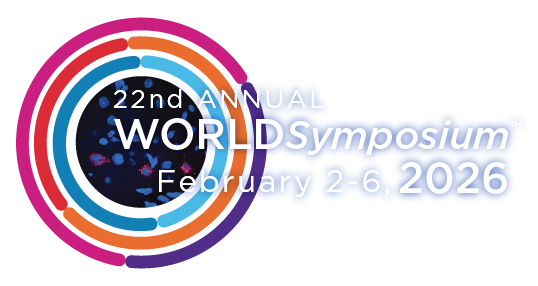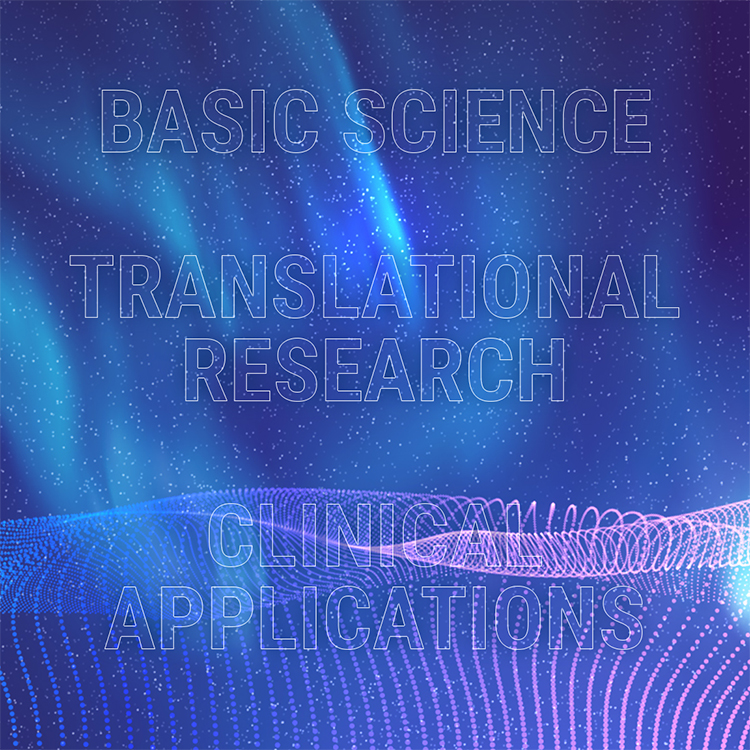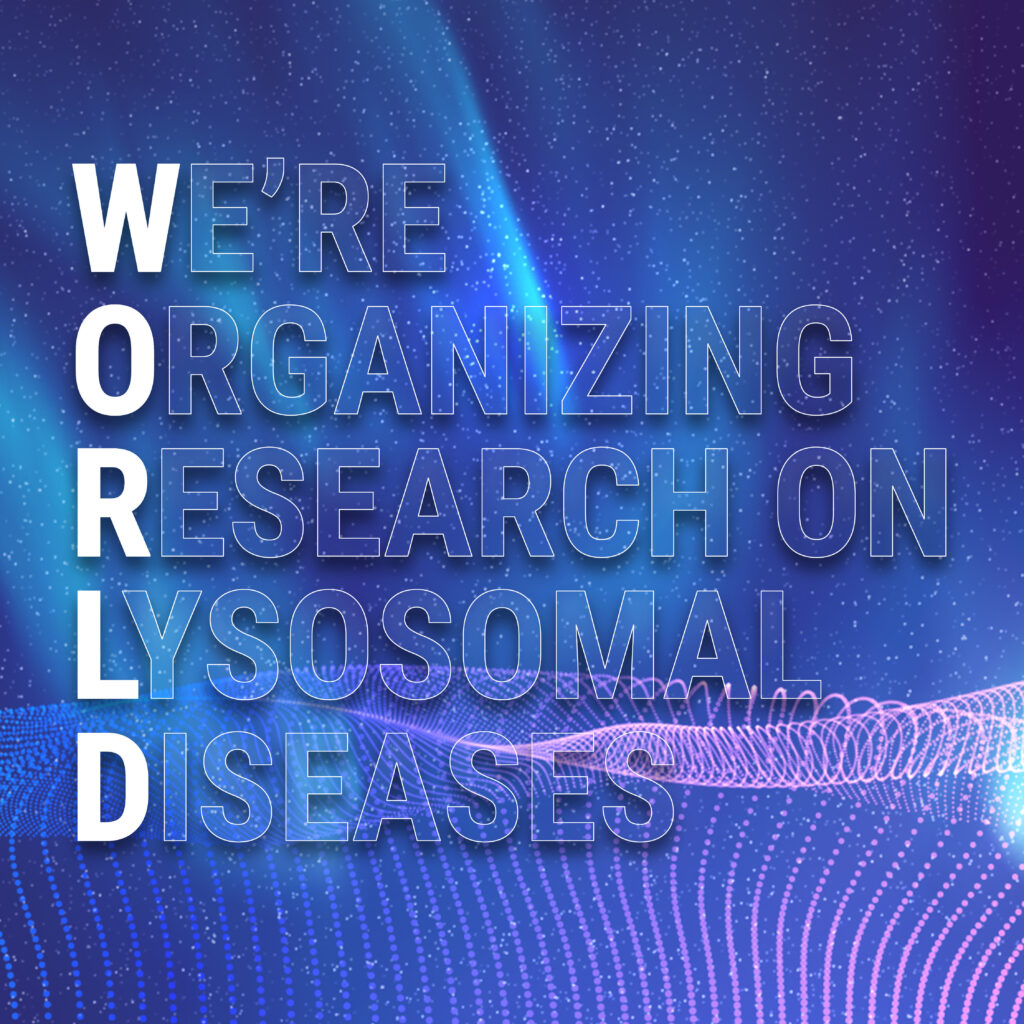

Manchester Grand Hyatt San Diego, San Diego, CA, USA
Access WORLDSymposium™ On Demand and ePoster Platform
Log into the On Demand and ePoster Platform here.
Logging into the ePoster / On Demand platform requires your last name and confirmation code.
Access WORLDSymposium Mobile App
Download the mobile app from the iOS App Store here.
Download the mobile app from the Google Play Store here.
More information about the mobile app can be found here.
Modify Your WORLDSymposium™ Registration
Modify Registration: Use the link below to navigate to the registration site. Click on the Already Registered? link in the upper right corner. If needed, click on the “Forgot your confirmation number?” link to retrieve your confirmation number.
WORLDSymposium 2026 Poster List is Now Posted
The full list of posters accepted for presentation at WORLDSymposium 2026 is now available. Poster content reflects a broad range of clinical, translational, and scientific research across the lysosomal disease community. Click here to download the 2026 Poster List.
WORLDSymposium 2026 Full Preliminary Program is Now Posted
This year’s program includes the 84 highest-scored abstracts, and incorporates the newly announced Late-Breaking and Rapid Fire speakers. With over 466 submitted abstracts, 2026 submissions reflect the second-highest number of abstract submissions to date – a testament to the global collaboration driving innovation across the lysosomal disease community. View the Full Preliminary Program >
Professor Michael H. Gelb, PhD, to Receive the 2026 Catalyst Award
WORLDSymposium is delighted to announce Professor Michael Gelb, PhD, as the recipient of the 3rd Annual Catalyst Award to be presented at WORLDSymposium 2026. A chemist by training, Dr. Gelb has spent the second half of his career researching the development of new assays for expanded Newborn Screening with a focus on lysosomal diseases. Read the full announcement here >
The 2026 Catalyst Award will be featured in two sessions:
- The Catalyst Award will be PRESENTED at the Be the Catalyst event on Monday, February 2, 2026, at 17:45.
- Then, on Thursday, February 5, 2026, at 08:00 PST, Dr. Gelb will share his pioneering research: Biochemical Newborn Screening for All Treatable Lysosomal Diseases, in a special keynote session.
Bob Stevens to receive the 2026 Patient Advocate Leader (PAL) Award
The WORLDSymposium Awards Committee is pleased to announce Bob Stevens as the recipient of the 2026 WORLDSymposium Patient Advocate Leader (PAL) Award. Bob currently serves as Group CEO of the MPS Society and Rare Disease Research Partners (RDRP). Under Mr. Stevens leadership, the MPS Society has expanded its global influence, remaining a world-leading patient organisation that provides one-to-one support, psychological services, and access to advocacy services across the UK and internationally. Read the full announcement here >
2026 Young Investigator Award Recipients Announced
WORLDSymposium is proud to announce the recipients of the 2026 Young Investigator Award. A total of 87 investigators-in-training who submitted research abstracts also applied for this year’s award. Following a highly competitive review, the WORLDSymposium Awards Committee selected 10 exceptional individuals to receive the 2026 honors. View the full announcement and list of recipients here.
Peter Marks, MD, PhD, will receive the 2026 Roscoe O. Brady Award
Each year, WORLDSymposium recognizes one individual for innovation and accomplishment in the lysosomal disease research and therapy field. Following a competitive nomination process, the WORLDSymposium 2026 Awards Committee has selected Peter Marks, MD, PhD, as the 2026 Roscoe O. Brady Award recipient. Read the full announcement here >
Registration and Hotel Booking Scams
There is an increase in the incidence of fraudulent websites, callers and emails posing as official websites, as well as unauthorized housing and registration companies attempting to solicit event attendees. WORLDSymposium does not share attendee or registration information with third parties. Booking through WORLDSymposium’s official hotel registration link on WORLDSymposium’s official meeting registration link are the only ways to ensure your meeting registration and hotel registration are legitimate. View entire notice >

WORLDSymposium 2026TOP 10 NOT-TO-BE-MISSED HIGHLIGHTS
- It is not too late to register for The Patient Voice 2026: Why Does Publish or Perish Apply to Patient Advocate Groups session.
- Looking for a new research collaborator, co-author, mentor, mentee, hiring manager, or new friend? Find them at 4th Annual Speed Mentoring Event.
- Congratulate the 2026 Catalyst Award recipient, Professor Michael Gelb, PhD, and participate in scheduled group photo opportunities.
- Celebrate Peter Marks, MD, PhD as he receives the 2026 Roscoe O. Brady Award.
- Discuss the top basic science, translational and clinical abstracts of the year in 3 live poster sessions with over 400 posters presented.
- Honor Bob Stevens, the 2026 Patient Advocate Leader Award Recipient.
- Applaud all ten 2026 Young Investigator Award Recipients.
- Be part of the future of NBS by attending Global Access to Newborn Screening: A Call to Action at the 5th Annual Robert J. Gorlin Symposium.
- Hear from Professor Michael Gelb, PhD in his Keynote Address as he will share his pioneering research Biochemical Newborn Screening for All Treatable Lysosomal Diseases.
- Discover the latest innovative research in 94 ground-breaking platform presentations on lysosomal diseases.
Connect with WORLDSymposium
Preliminary Schedule at a Glance*
Download Schedule at a Glance (PDF)
| Day | Monday Feb. 2, 2026 | Tuesday Feb. 3, 2026 | Wednesday Feb. 4, 2026 | Thursday Feb. 5, 2026 | Friday Feb. 6, 2026 |
|---|---|---|---|---|---|
| Satellite Symposia | Satellite Symposia | Satellite Symposia | Satellite Symposia | ||
| Morning | Roscoe. O. Brady Award Basic Science | Patient Advocate Leader & Young Investigator Awards Translational Research | Catalyst Award Keynote Presentation Clinical Applications | Contemporary Forum & Late-breaking Science | |
| Basic Science | Translational Research | Clinical Applications | Contemporary Forum & Late-breaking Science | ||
| Midday | Satellite Symposia | Satellite Symposia | Satellite Symposia | Satellite Symposia | |
| Afternoon | The Patient Voice | Basic Science | Translational Research | Clinical Applications | Rapid Fire Abstract Challenge |
| Speed Mentoring Event | Industry Expert Theater Poster Session I | Industry Expert Theater Poster Session II | Industry Expert Theater Poster Session III | ||
| Evening | Be the Catalyst Award Presentation & Event | Satellite Symposia | Satellite Symposia | Robert J. Gorlin Symposium |
*Subject to change.
Plan on attending the
22nd Annual WORLDSymposium
February 2, 2026: The Patient Voice
February 2 - 6, 2026: Research Meeting
February 5, 2026: Robert J. Gorlin Symposium
Manchester Grand Hyatt San Diego, San Diego, CA, USA
Scientific Meeting Location & Accommodations
Manchester Grand Hyatt San Diego
1 Market Place,
San Diego, CA 92101
Phone: +1 619 232 1234
Website: hyatt.com
Letters of Invitation
Your meeting registration confirmation will include a link to generate a customized letter of invitation, which can be used when applying for a visa.
About WORLDSymposium
WORLDSymposium™ is an annual research conference dedicated to lysosomal diseases.
WORLD is an acronym that stands for We’re Organizing Research on Lysosomal Diseases.
The goal of WORLDSymposium is to provide an interdisciplinary forum to explore and discuss specific areas of interest, research and clinical applicability related to lysosomal diseases. Each year, WORLDSymposium hosts a scientific meeting presenting the latest information from basic science, translational research, and clinical trials for lysosomal diseases.
This symposium is designed to help researchers and clinicians to better manage and understand diagnostic options for patients with lysosomal diseases, identify areas requiring additional basic and clinical research, public policy and regulatory attention, and identify the latest findings in the natural history of lysosomal diseases.

